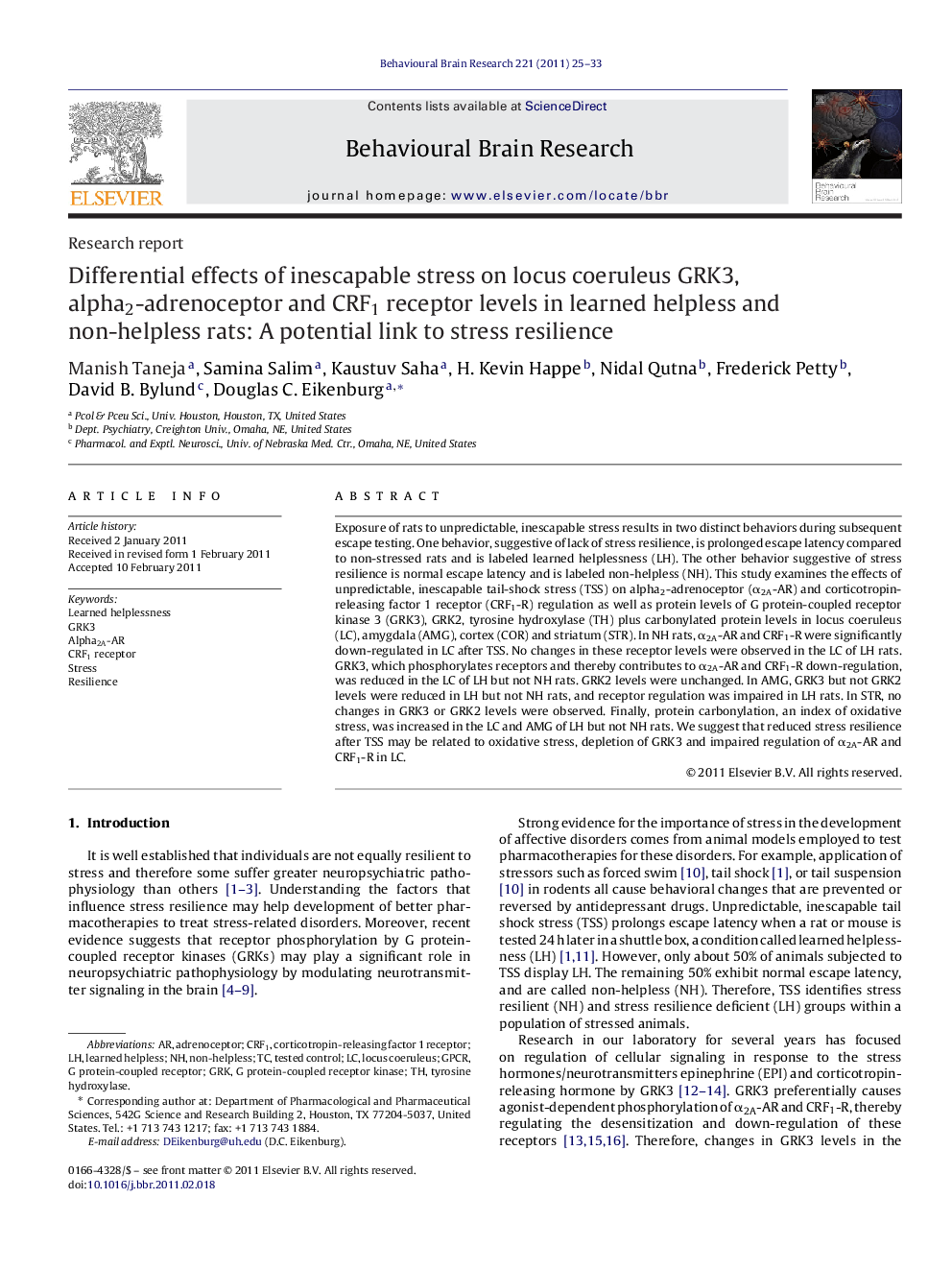| کد مقاله | کد نشریه | سال انتشار | مقاله انگلیسی | نسخه تمام متن |
|---|---|---|---|---|
| 4313672 | 1290006 | 2011 | 9 صفحه PDF | دانلود رایگان |

Exposure of rats to unpredictable, inescapable stress results in two distinct behaviors during subsequent escape testing. One behavior, suggestive of lack of stress resilience, is prolonged escape latency compared to non-stressed rats and is labeled learned helplessness (LH). The other behavior suggestive of stress resilience is normal escape latency and is labeled non-helpless (NH). This study examines the effects of unpredictable, inescapable tail-shock stress (TSS) on alpha2-adrenoceptor (α2A-AR) and corticotropin-releasing factor 1 receptor (CRF1-R) regulation as well as protein levels of G protein-coupled receptor kinase 3 (GRK3), GRK2, tyrosine hydroxylase (TH) plus carbonylated protein levels in locus coeruleus (LC), amygdala (AMG), cortex (COR) and striatum (STR). In NH rats, α2A-AR and CRF1-R were significantly down-regulated in LC after TSS. No changes in these receptor levels were observed in the LC of LH rats. GRK3, which phosphorylates receptors and thereby contributes to α2A-AR and CRF1-R down-regulation, was reduced in the LC of LH but not NH rats. GRK2 levels were unchanged. In AMG, GRK3 but not GRK2 levels were reduced in LH but not NH rats, and receptor regulation was impaired in LH rats. In STR, no changes in GRK3 or GRK2 levels were observed. Finally, protein carbonylation, an index of oxidative stress, was increased in the LC and AMG of LH but not NH rats. We suggest that reduced stress resilience after TSS may be related to oxidative stress, depletion of GRK3 and impaired regulation of α2A-AR and CRF1-R in LC.
Research highlights
► Tail shock stress produced learned helplessness (LH) in ∼50% of rats tested.
► LH is associated with selective reduction of GRK3 levels in locus coeruleus (LC).
► No changes in GRK2 in LC were observed.
► Down-regulation of α2A-AR and CRF1-R was impaired in LC of LH rats.
► Increased oxidative stress in LC also was observed in LH rats.
Journal: Behavioural Brain Research - Volume 221, Issue 1, 1 August 2011, Pages 25–33